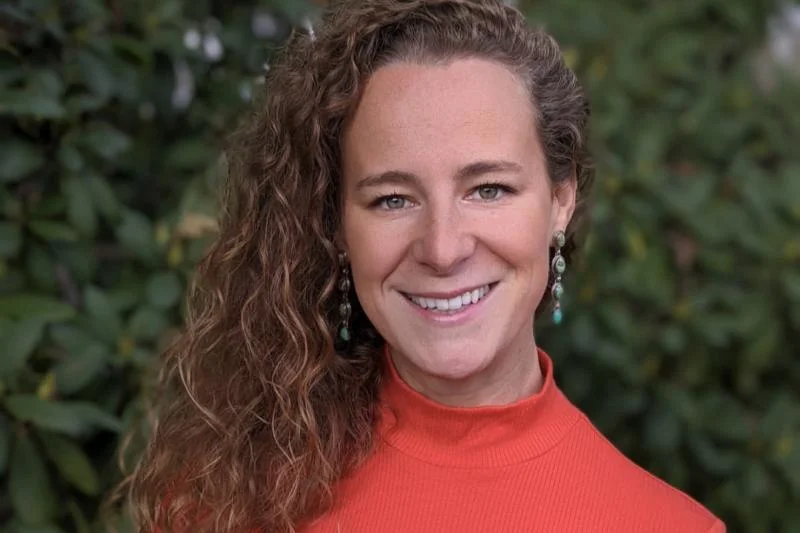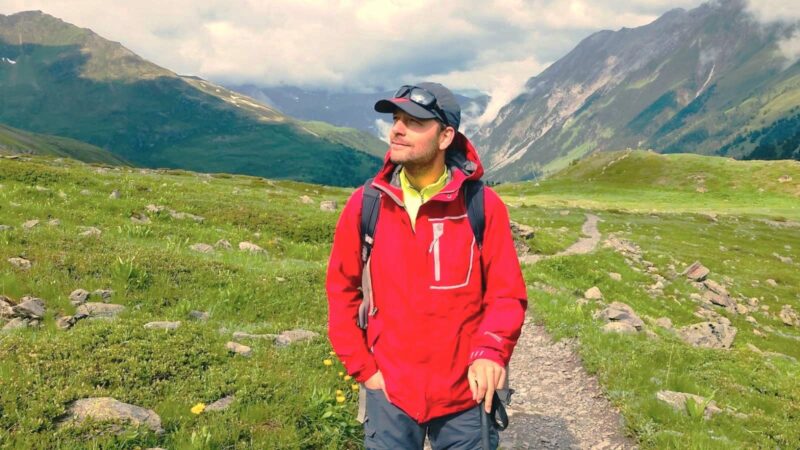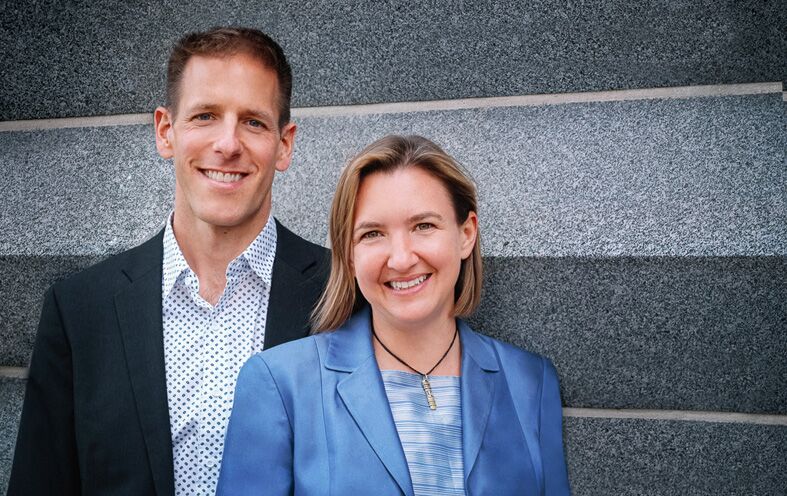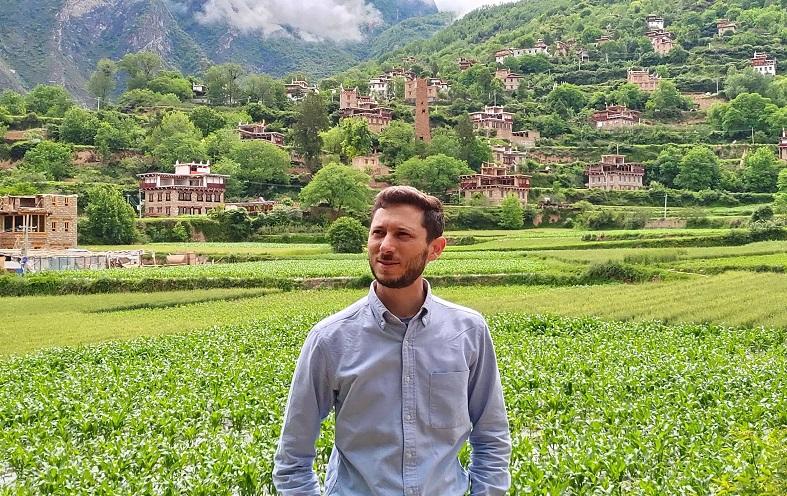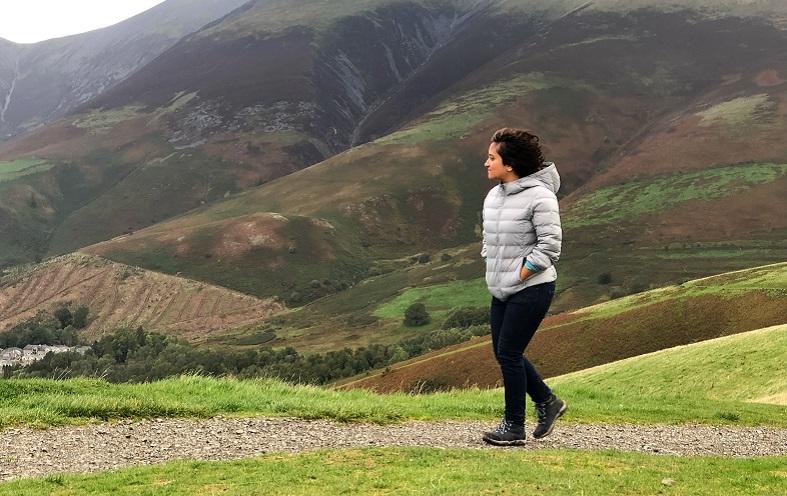
Shivya Nath is a sought-after travel writer from India who mesmerises her followers with her travel stories from around the world via her website The Shooting Star. And she is on a mission to promote sustainable travel. In this interview, Shivya shares how her nomadic lifestyle took a backseat due to the travel restrictions caused by the coronavirus pandemic and how this inspired her to start Voices of Rural India – an initiative to help rural storytellers to find their voice in the digital space.
Shivya, you have been travelling around the world for over eight years now. How has the pandemic affected your work as a travel blogger?
Back in 2013, I gave up my rented apartment and sold most of my belongings. In the years since I’ve felt at home in many places around the world but not put down roots anywhere.
Having no possessions and no commitment to a single place felt liberating on many levels… until I found myself in lockdown!
In a way, this unprecedented crisis has challenged everything about my life philosophy in the past seven years.
I don’t own a house or a car, and until a few months ago, I didn’t even own any cooking equipment. I’ve long believed in the sharing economy to find homes and rides around the world. COVID came as a total shock to my existence.
I’ve also dedicated almost a decade of my life to my travel blog, The Shooting Star. It’s my primary source of living, yes. But it’s also my passion, my bridge to the world and one of the few constants in my nomadic life. And what is travel blogging at a time when we can’t travel, right?
The travel industry (including travel blogging) has taken a big hit in the past 7 months. Personally, my blog traffic has dwindled, on-going projects have been put on hold and potential assignments postponed indefinitely.
Yet I remain cautiously optimistic.
I believe that sometime in the distant future, we will travel again. Borders will re-open, businesses that survive will emerge stronger and we’ll get our passports stamped. And when that happens, travel blogging – especially the kind that’s rooted in sustainability – will become more important than ever.
To be honest, in the middle of a pandemic that has shattered many travel and life plans, I feel really grateful about the choices I’ve made. I’m glad I didn’t put off my dream of slow travelling the world on my own terms. I’m grateful I didn’t build a bucket list to tick off only once I retired.
Do you remember what first got you interested in tourism and sustainability?
My perspective on travel began to change as I travelled to under-the-radar destinations and spent time with local communities. It made me realise that travelling is not just about sightseeing and photos, but a deeper change in your world view.
The world of travel has changed immensely since I set out on my first solo trip and began my journey as a travel writer/blogger back in 2011. Travelling has become more accessible, flights are cheaper than ever before and Instagram has changed the way we see the world.
I’ve gone back to places I’d fallen in love with, only to find them ruined by mass tourism, the plastic menace and other pitfalls of tourism. That gradually led me down the path of sustainability – first re-evaluating my own travel footprint, then writing about responsible travel choices as a more immersive way to experience the world.
In the age of overtourism and in the midst of a climate crisis, responsible tourism is not just a pressing need to protect the incredible natural and cultural heritage of our world. It is also the only way we can still find authentic experiences, engage meaningfully with locals and savour the pristine beauty (or what remains of it) on our planet.
What motivated you to take up ‘passion projects’ to work towards the betterment of the environment and communities? Was there a specific moment or epiphany?
I think it was a gradual evolution of the connection I made with places and local communities on my travels.
Back in 2011, I set out on my first solo trip in India. The destination was Spiti Valley, a barren, high altitude mountain desert in the Trans-Himalayas. My mission was to volunteer with Spiti Ecosphere, a tourism-driven social enterprise in the region, and immerse in other ways of life. That trip changed my life.
One week after that trip, I resigned from my full-time desk-based job in Singapore and started charting out a different path in life.
Six years later, when I finally went back, I nearly cried when the shared taxi deposited me in Kaza, the administrative capital of Spiti. The town that I remembered with only a couple of shops and guesthouses, a handful of travellers, and nothing but the barren mountains all around, had changed beyond recognition. Taken over by chaotic concrete construction, shops, tourists and mounds of plastic waste.
So in collaboration with Spiti Ecosphere – the organisation I had first volunteered with – and their volunteers, I decided to focus on one big issue: plastic bottles.
Thus began a passion project, I Love Spiti, committed to reducing plastic waste in Spiti. We built a life-size art installation with plastic bottles to create awareness, began the conversation with local hotels, restaurants and shops, installed public water refill points in 4 villages with the support of LifeStraw, and are currently working on a revenue stream to be able to compile and send plastic waste from the valley down to the plains for recycling at the end of each tourist season.
Voices of Rural India is one of your most recent initiatives. Why the focus on rural areas? And how is this initiative benefiting the communities you write about?
The conversation about Voices of Rural India (VoRI) began sometime in May this year when the scale and intensity of COVID-19 were finally sinking in – and the impact of the pandemic-induced lockdown on tourism was becoming evident.
It gradually became obvious that tourism is unlikely to recover in the foreseeable future (in advance of a vaccine) and that despite the loss of livelihoods, rural communities in India are choosing to remain closed to the outside world. As urban dwellers with easy access to the digital world, we can continue to work, study and scout new opportunities online. In rural parts of India however, the lack of digital skills and tailored opportunities continue to be a challenge.
This context sparked the idea of Voices of Rural India.
VoRI is essentially an effort to turn this unprecedented crisis into an opportunity to create alternate livelihoods by upgrading digital skills in rural India, while also preserving grassroots knowledge that is slowly disappearing.
In the short-term, Voices of Rural India is creating a revenue stream for affected communities through digital journalism. The storytellers – typically guides, homestay hosts, people involved in tourism, and youth and women from the community – are paid a fee directly in their bank accounts for every story accepted for publishing.
In the long run, it aims to develop digital storytelling skills at the grassroots level, along with becoming a repository of local culture and knowledge, documented in local voices.
Even though India is theoretically open for domestic travel now, many people are choosing not to, and many communities have decided to remain closed to tourism. The next best thing is to travel virtually, through the words, photos and videos of the very people we travel to meet.
Vegan travel is a comparatively new market niche and a topic you also like to write about. What potential, do you think, does this form of travel have in the context of promoting responsible travel and more sustainable tourism?
I transitioned into a vegan lifestyle over four years ago, after learning about the animal cruelty involved in using animals for food and other lifestyle products like leather and silk.
As someone who has faced sexism and racism first hand on my travels, I was shocked to realise that I was blissfully unaware of my own speciesism – the idea that we wish freedom and love for some animals (birds, dogs, etc) and think it’s okay to brutally use other animals (cows, goats, etc) to satisfy our taste buds.
Along the way, I also learned that animal agriculture accounts for 14.5% of global carbon emissions and is extremely water and land use intensive. According to many scientific reports, our food choice can be one of the most powerful ways to fight climate change as an individual.
So for me, veganism and sustainable travel go hand in hand. The vegan movement has taken hold in most cities around the world, and will only become stronger with time. As conscious travel grows, so will the demand for travel options that are not just environmentally-friendly but also rooted in compassion for all living beings.
Indian consumers haven’t embraced sustainable tourism yet. How can we encourage tourism industry players and travellers within the country to embrace sustainable travel?
It’s an uphill journey, but with growing awareness, especially among the younger generations, I hope we’ll slowly get there.
India has some commendable sustainable tourism initiatives that leverage tourism not just as a means to create sustainable livelihoods but also as a way to invest in clean energy, wildlife conservation, waste management, etc. But they’re the exceptions, not the norm.
First, we need a radical shift of mindset among travellers, to view travel not as a way to create an enviable Instagram feed, but as a journey to discover other ways of being, both physically and within. When we start to see travelling as an extension of life rather than an escape from it, we’ll build more meaningful connections with nature and the people we meet along the way – and feel compelled to take measures to protect both.
Second, we need big policy changes within the tourism sector in India. Instead of building destinations for tourists, we need to create better places to live – with a focus on sustainable infrastructure, green spaces, heritage preservation, conservation of biodiversity and ownership of natural resources. With such a shift in policy, we’ll automatically create better destinations to visit.
And third, we need the industry to evolve and take ownership of the natural and cultural heritage of the country, becoming its custodians rather than mere beneficiaries.
What can sustainable tourism brands and “green” destinations do to share their efforts and experiences more effectively with travellers?
I think the biggest communication challenge for sustainable tourism brands is to not use the word “sustainable”. Except for a niche set of travellers, many still think of sustainable/responsible/green travel as boring. Brands need to leverage all available channels – from their website and social media to influencer marketing and any form of advertising – to position sustainable travel as more immersive, edgy and desirable.
We need to bring everyone who influences travel decisions (celebrities, bloggers, Instagrammers etc) into the conversation, and hold them accountable for the kind of travel they promote. We need a movement to convert “responsible travel” into simply, travel.
What do you think will be the role of niche bloggers and social media influencers in travel and tourism, following the coronavirus pandemic?
When we emerge from this crisis, we need to ensure we don’t walk into another one. That means the future of travel is all about becoming more conscious of how we promote destinations, reduce our individual carbon footprint and use our tourism money to meaningfully support local communities and businesses.
Bloggers and social media influencers must create awareness and lead by their own choices, or risk becoming obsolete.
In your experience, which regions or destinations are the most pro-active in how they practice and promote sustainable tourism?
Bhutan is a glowing example of a destination that has prioritised quality over quantity and forests over “development”. It truly uses tourism as a means for sustainable development.
One can argue that Bhutan’s daily fee is a deterrent for many travellers who simply cannot afford it. However, that fee not only minimises the negative consequences of tourism in Bhutan but also allows the sizeable revenue generated through tourism to be reinvested in the country with a focus on environmental and social well-being.
On the other hand, travellers who can afford to explore Bhutan are offered rewarding “living natural classroom” experiences different from any of its neighbouring Himalayan destinations.
Unfortunately many destinations in India that started as exemplary examples of community-oriented and environmentally-conscious tourism have fallen prey to mass tourism – with price-sensitive travellers choosing cheaper travel options that create little to no benefits for the local people and ecology.
Thank you, Shivya.
Connect with Shivya Nath on LinkedIn. Follow Shivya’s journey around the world on Facebook, Instagram, and Twitter and do check out her blog The Shooting Star.
Enjoyed our interview with Shivya Nath on the future of travel in the post-pandemic world and how she is supporting rural storytellers in India to find their voice in the digital space? Thanks for sharing!

